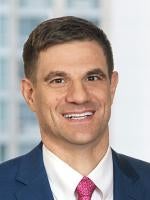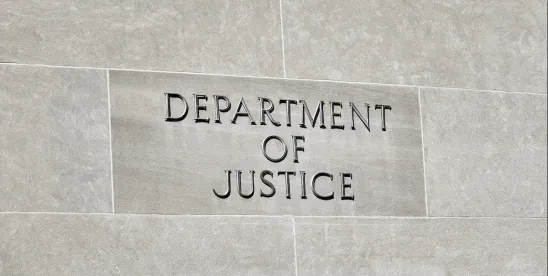On July 21, 2025, the Department of Justice (DOJ) updated its recent accomplishments, which included a section on enforcing citizens’ rights in a place of public accommodation.1The DOJ noted two such litigations under Title II. The more recent matter, United States v. Fathi Abdulrahim Harara, et al. (Jerusalem Coffee House) (N.D. CA 2025)2 was based on a pattern of discriminating against Jewish patrons based on race and religion. The other, United States v. AWH Orlando Property, LLC, d/b/a DoubleTree by Hilton Hotel Orlando at SeaWorld (M.D. FL 2025.),3 led to a consent decree challenging a discriminatory policy of the hotel against hosting guests of Arab descent.
Disputes over public accommodation discrimination are not uncommon and there have been a number of such private lawsuits in 2025 alleging Title II violations involving religions and races. Some of these public accommodation disputes have involved incidents online in violation of the Americans with Disabilities Act (ADA) compliance for websites. These concerns on public accommodation appear to be a growing item of which businesses should be aware.
Impact of Title II
In contrast to Title VII of the Civil Rights Act of 1964, as amended, which prohibits discrimination in employment based on protected classes including race, color, religion, sex, and national origin, Title II prohibits discrimination in public accommodations based on race, color, religion, or national origin. Title II may be enforced directly by individuals in federal court, or by the DOJ when a pattern of discrimination in public accommodations is alleged. Most states’ antidiscrimination statutes also contain provisions prohibiting discrimination in public accommodations. Places of public accommodation may include hotels, restaurants, movie theaters, concert halls, and sports and other entertainment arenas. An emerging area of law is whether places of public accommodation can include virtual spaces. In connection with this, both private citizens and the DOJ are bringing actions challenging entities that they feel are not providing certain groups access to places of public accommodation.
United States v. Fathi Abdulrahim Harara (Jerusalem Coffee House)
One such place of public accommodation is the Jerusalem Coffee House in Oakland, California. The Jerusalem Coffee House has been sued twice before, both by Jonathan Hirsch – captured on video being asked whether he was a Zionist while wearing a hat displaying a Star of David – and another private citizen, Michael Radice of Los Angeles, who alleged he experienced harassment and intimidation by the owners of the coffee shop for being Jewish and being a Zionist.
According to the DOJ’s June 2025 lawsuit:
- Jonathan Hirsch, who was wearing a hat displaying the Star of David, was repeatedly asked by the café’s owners whether he was a Zionist and then asked to leave.
- The coffee shop’s exterior wall and menu are decorated with inverted red triangles, a symbol popularized by Hamas.
- The coffee shop advertised an event on combatting “normalization” in March 2025, a term used to describe the legitimization of Israel’s right to exist.
- The coffee shop released a new menu on October 7, 2024, containing new drinks called the “Sweet Sinwar” and “Iced In Tea Fada.”
The Jerusalem Coffee House filed a motion to dismiss, arguing that the allegations in the complaint of two isolated incidents, even if accepted as true, do not amount to a “pattern or practice” within the meaning of Title II. The DOJ filed its opposition and later the defendants filed their reply, and now the motion is fully briefed. Although the motion to dismiss remains pending, as noted in the DOJ’s opposition, their focus is “about Defendants’ policy and practice of denying service to patrons who are identifiably Jewish.”
United States v. AWH Orlando Property, LLC d/b/a DoubleTree by Hilton Hotel Orlando at SeaWorld
The DOJ entered into a consent order in another case alleging discrimination in public accommodations in violation of Title VII concerning Middle Eastern politics on February 5, 2025. In the case against AWH Orlando Property, the DOJ had alleged that the defendant hotel adopted and implemented a policy against hosting guests of Arab descent in violation of Title II by unilaterally canceling an event that was to be hosted by a nonprofit educational and cultural organization, the Arab America Foundation. The consent order required the defendant to issue a statement to the Arab America Foundation that all guests are welcome at the hotel, establish a written antidiscrimination policy, notify employees of their obligations under the consent decree, provide Title II training, conduct outreach to Arab American groups, and regularly report to the DOJ to demonstrate compliance.
2025 Decisions Addressing Public Accommodation Claims Based on Religion
In connection with private individuals raising concerns on public accommodation in connection with religion, there have been some decisions addressed by the courts in 2025.
For the matter Lopez v. YWCA of Ne. N.Y. (N.D. NY 2025), the plaintiff alleged that the subcontractors the YWCA hired to move her to 121 Park Place destroyed "several valuable religious items that Plaintiff keeps at her door and keeping with her faith, an African-based belief system known as Santeria." The plaintiff alleged that individuals on behalf of the defendant "minimized these violations" because they did not recognize the plaintiff's religion as "on par with other major religions, such as Christianity, Islam, Buddhism, etc." The court held that “[e]ven construed liberally, Plaintiff's conclusory allegation that Siciliano and Rayne did not recognize Plaintiff's religion as ‘on par with other major religions’ does not allow a plausible inference of discriminatory intent based on religion.”
With the matter Benshoof v. City of Shoreline (W.D. WA 2025), it was alleged, among other things, that a grocery store’s requirement to wear a mask violated his religious beliefs. The plaintiff identified himself as a "reverend of the Church of the Golden Rule" and alleged that his "firmly held spiritual beliefs proscribe him being coerced to wear a face covering as a condition of entrance to public accommodations including, but not limited to, Central Markets." The court found that these allegations "do not permit the court to infer that the [masking policy] place[s] a substantial burden on the exercise of his religion." The court, in dismissing the complaint, noted that the plaintiff "does not identify how or why the tenets of his religion proscribe masks and he fails to describe how [Defendant] T&C’s mask policy placed a substantial burden on the exercise of that religion."
Growing Concern on Public Accommodation Claims in Cyberspace
While there have been many lawsuits filed asserting that websites are places of public accommodation under the ADA, there are other actions being asserted that address the issue of religion and access to online communities.
In Hasson v. Luminosity Gaming, LLC,4 the plaintiff in his December 2024 lawsuit, later amended on May 15, 2025, claims that an online gaming community is a place of public accommodation, and that banning the plaintiff from participating in the community’s tournaments because of his support for Israel, identification as a citizen of Israel, and self-identification as a Zionist amounts to discrimination based on race, religion, and national origin in violation of Title II and New York civil rights laws. The plaintiff in Hasson claims that other members of the community who espouse anti-Semitic views and commentary have not been banned from the community. Per the August 29, 2025, status report to the court, a proposed second amended complaint is forthcoming, and the parties are anticipating substantive motions. The Hasson suit has raised questions about whether political and religious views are influencing competitive eligibility criteria for professional gaming and, if so, whether this constitutes a violation of Title II and corresponding New York civil rights laws.
A question similar to whether an online gaming community is a place of public accommodation pursuant to Title II was raised in 2022 in Elansari v. Meta, Inc. (3rd Cir. 2024). In that case, the plaintiff alleged that Meta, d/b/a Facebook, discriminated against him in violation of Title II and Pennsylvania state law because he is Muslim when it blocked certain content concerning what he referred to as the Palestine/Israel conflict but was not “blocking and silencing pro-Israel and pro-Jewish organizations advocating violence against Arabs and Muslims.” The defendant filed a motion to dismiss, arguing that the plaintiff failed to state a claim under Title II because it is not a place of public accommodation. The U.S. District Court for the Eastern District of Pennsylvania agreed, granting the defendant’s motion to dismiss. In so ruling, the Elansari court held that (1) Facebook is not a public accommodation under Title II because it is not a physical facility and (2) the plaintiff did not allege that he was denied access to services on Facebook, but merely alleged that some Palestine/Muslim news pages were removed while Israel/Jewish news pages were not. Elansari v. Meta, Inc. (E.D. PA 2022). Later on, the Third Circuit affirmed the dismissal, and found the plaintiff lacked standing.
Implications for Business Owners in 2025
Business owners should be aware of these new efforts by the DOJ, as well as by private citizens, and be ready to defend against such allegations by ensuring that all patrons – to its physical locations and online communities – are provided with equal opportunity to use and enjoy its services under Title II. To aide in this effort, business owners should consult with counsel about (1) revising policies and procedures to ensure that all patrons receive the same service regardless of religion and national origin and (2) training their employees on these policies.
Business owners also should be cognizant that places serving the public are not the appropriate location for activities that could be perceived as creating a hostile environment for patrons based on religion and that potential new government activism on addressing antisemitism and religious discrimination may become more frequent in 2025 and 2026.
___________________________________________________________________________________________
1 https://www.justice.gov/crt/recent-accomplishments-housing-and-civil-enforcement-section#public
2 25-cv-04849 (N.D. CA)
3 25-cv-67 (M.D. FL)
4 24-cv-09693 (S.D. NY)




 />i
/>i

